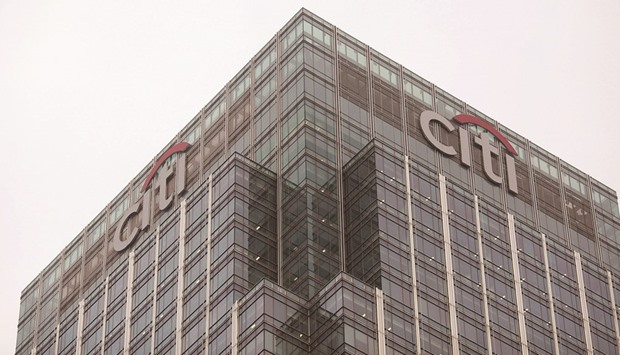Citigroup’s best prospects for selling its retail-banking operations in Brazil, Argentina and Colombia are probably with local firms looking to expand or with Spain’s Banco Santander.
Itau Unibanco Holding, Latin America’s biggest bank by market value, is already expanding in Colombia and is one of the most likely buyers in Brazil and Argentina as well, said Rodrigo Martin, a bank analyst at Quantitas. Madrid-based Banco Santander is interested in all three, depending on the price, two people with direct knowledge of the bank’s strategy said. Press officials for Itau and Santander declined to comment.
Citigroup said on Friday it plans to sell its retail-banking and credit-card operations in the three countries, and hold on to the businesses that serve institutional and corporate client there. The New York-based company’s retail operations never achieved the kind of scale needed to succeed in Brazil and Argentina, Martin said.
“I don’t see a new player coming to Brazil or Argentina to buy these assets,” Martin said in a telephone interview. “It would suffer the same problem that Citigroup and HSBC suffered, at least in Brazil: the lack of scale.”
HSBC Holdings agreed in August to sell its Brazil unit to Banco Bradesco for $5.2bn. That deal is receiving an extra layer of scrutiny from Brazil’s antitrust agency, Cade, which said the size of the transaction warrants a deeper look than most bank mergers. Citigroup had shareholders’ equity of 7.34bn reais ($1.8bn) in Brazil in September, compared with 9.59bn reais for HSBC, according to the central bank.
Santander might have trouble making an aggressive bid after a 46% plunge in the company’s shares in the past year, one of the people said, adding that it might also run into antitrust issues in Argentina. Santander Chairman Ana Botin said on Tuesday that investors driving the share price lower were too pessimistic about how much Brazil’s economic downturn will hurt profit.
Santander, Spain’s biggest bank, is also interested in Citigroup’s retail assets in Colombia, the people said. Santander left that market in 2012, when it sold its local unit to Chile’s Corpbanca for $1.23bn. Two years later, Itau agreed to take control of Corpbanca for $2.2bn in its biggest international acquisition.
Citigroup’s business in Colombia had a book value of 1.7tn Colombian pesos ($506mn) as of September, according to the nation’s financial regulator. Banco de Bogota, Banco Davivienda and Bancolombia are among the biggest local banks.
Citigroup’s Brazil bank is too small to qualify as a strategic asset for most potential acquirers, the way HSBC was for Bradesco, said Andre Riva, an analyst at Grupo Bursatil Mexicano.
“I don’t see any newcomer buying Citigroup,” Riva said in a telephone interview. “It lacks scale in Brazil, and global banks are leaving this market.”
In Argentina, analysts see an opportunity for local banks such as Banco Macro or Banco Hipotecario to take more market share and add branches in the capital. A foreign bank like Industrial & Commercial Bank of China might also see the Citigroup unit, which has a book value of 8.5bn Argentine pesos ($560mn), as a way to consolidate its presence.
“Macro doesn’t have much of a presence in Buenos Aires and the surrounding areas, where its competitors are strong,” said Juan Manuel Vazquez, a corporate analyst at Buenos Aires-based brokerage Puente. “Buying Citi would make it stronger and it has the capital to pull it off. It’s the most logical buyer.”
Banco Macro has the second-most deposits among private lenders after Banco de Galicia y Buenos Aires and the second- largest cash and cash equivalents on hand, according to the latest filings of publicly traded Argentine banks.
Macro would evaluate a possible acquisition but hasn’t made any firm decisions, according to a bank official who isn’t authorised to speak publicly. The bank’s press department declined to comment.
Macro President Jorge Brito said in a November interview that he’s interested in using the bank’s cash pile to make acquisitions if the right opportunity surfaces.
A smaller local bank like Banco Hipotecario, which is majority government-owned but managed privately, could also be interested in the asset because it would accelerate growth plans, according to Christian Reos, an analyst at Allaria Ledesma, a Buenos Aires-based brokerage.
“For banks with a small branch presence like Banco Hipotecario, gaining more branches would propel them into the big leagues,” Reos said in a telephone interview. “If Argentina regains access to credit, the banks could issue an international bond. A resolution to the dispute opens a variety of financing possibilities for banks.”
ICBC, which bought an 80% stake from Standard Bank Group’s Argentine banking business in 2012, could be interested in Citigroup’s assets to accelerate its strategy in South America’s second-largest economy.
Banco Hipotecario declined to comment, while ICBC didn’t immediately respond to a request for comment on whether they’ll pursue Citigroup’s assets in Argentina.

The headquarters of Citigroup in London. Citigroup’s best prospects for selling its retail-banking operations in Brazil, Argentina and Colombia are probably with local firms looking to expand or with Spain’s Banco Santander.
